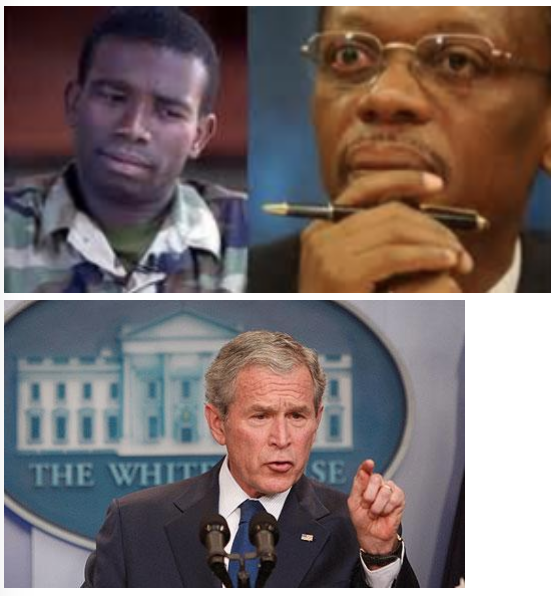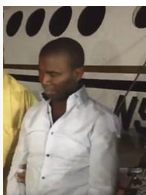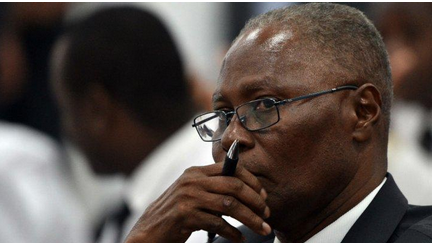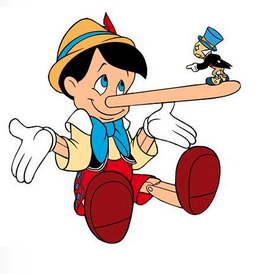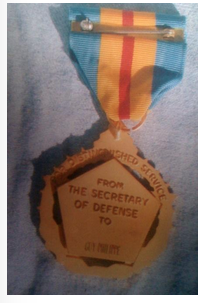A 2002 photo shows Guy Philippe (far left), one of the rebel leaders of the Resistance Front, in Gonaives after an armed revolt. Peter Andrew Bosch Herald files
By Jacqueline Charles and Jay Weaver
Just months after a U.S. grand jury indicted ex-Haitian rebel leader Guy Philippe on drug-trafficking charges, federal authorities attempted to trick him into accepting travel documents that would bring him to South Florida — and into the arms of the law.
But Philippe, a roguish former Haiti National Police commander who two years earlier had led the insurgency against then-President Jean-Bertrand Aristide, didn’t take the bait.
The ploy was only one of more than 10 attempts by U.S. law enforcement — with the help of Haiti National Police — to bring Philippe to justice during an elaborate, international game of cat-and-mouse that spanned almost a dozen years before his arrest Jan. 5 outside a Haiti radio station.
“On numerous occasions, agents traveled to Haiti and worked with their Haitian counterparts to strategize and execute arrest operations that were unsuccessful,” federal prosecutors admitted for the first time in court documents filed this week. “During these attempts, agents were fired upon and encountered extremely dangerous circumstances in the area.”
Federal agents tried to arrest Philippe, 49, many times in collaboration with the Haiti National Police: setting up checkpoints, paying informants, launching a U.S. military operation and pursuing him in a foot chase but lost him in dense vegetation. Philippe had been a suspected drug trafficker at least since 2000. He is the last high-profile defendant from a U.S. crackdown on cocaine smuggling through Haiti that yielded the convictions of more than a dozen drug traffickers, Haitian senior police officers and a former Haitian senator.
Former Haiti coup leader Guy Philippe, who has been wanted for more than a decade on drug charges in the United States, was arrested Thursday in Haiti and escorted to Miami by U.S. federal agents.
Despite the repeated attempts to arrest him, prosecutors said, Philippe would “personally reach out to various agents” over the past decade to discuss the terms of his possible surrender to U.S. authorities. His former Miami attorney even tried to negotiate a lenient sentence of less than three years, and his wife inquired about where he might be imprisoned, according to court papers filed by federal prosecutors this month.
Philippe, who claims in court papers he didn’t know he was wanted on drug-and money-laundering charges by federal authorities, even filed a Freedom of Information Act request seeking to learn what the U.S. government had on him.
The government’s disclosures, outlined in a 14-page document filed by prosecutor Lynn Kirkpatrick, show for the first time the lengths to which the Drug Enforcement Administration, FBI and the U.S. Marshals Service went to arrest Philippe.
Philippe had just been elected to the Haitian Senate when he was arrested outside a Port-au-Prince radio station by Haitian police officers with the anti-drug trafficking unit. The officers arrested him under a Haitian warrant charging him with carrying out a 2016 deadly attack on a police station in southern Haiti.
Within an hour, the officers turned Philippe over to DEA agents — at the request of the U.S. government — and he was immediately expelled from the country with the authorization of Haiti’s minister of justice, according to the prosecution’s new court filings.
Philippe and his defense attorney have repeatedly called the arrest a “kidnapping.”
Prosecutors disclosed the latest information to counter Philippe’s assertion that his arrest was illegal because he had immunity as an elected Haitian senator who was set to be sworn in four days after his arrest.
Natalie Philippe, wife of Guy Philippe, confirming that it was her husband’s voice from inside a Miami federal detention lockup in a recording that went viral recently.
They also laid out the numerous U.S. attempts to arrest Philippe to rebut his effort to dismiss the drug-trafficking indictment filed in November 2005, claiming the prosecution violated his constitutional right to a speedy trial. Philippe’s attorney asserted that the delay has been “unreasonable” because more than 11 years have passed since the filing of the indictment.
“The government has made no meaningful effort during those many years to bring Mr. Philippe to trial,” his attorney, Zeljka Bozanic, wrote in the dismissal motion.
But her motion ignores the various U.S. attempts to arrest Philippe during that period — including coverage of some in the Miami Herald and other news media. Nor does the motion acknowledge the 70-day deadline for a speedy trial. The clock starts ticking after the defendant’s first appearance in federal court; Philippe faced the drug charges for the first time Jan. 6. He has pleaded not guilty and is being held at the federal detention center in Miami.
Philippe’s high-profile arrest has turned the notorious figure into a cause célèbre in his native country. Supporters have demonstrated in his western Haiti hometown of Pestel, and outside of the U.S. Embassy in Port-au-Prince seeking his immediate return. And on Wednesday, the Haitian Senate overwhelmingly approved a resolution “energetically condemning” Philippe’s arrest and deportation to the United States.
“The Senate was humiliated,” said Sen. Carl Murat Cantave, who led the push for the resolution along with fellow senator and former government prosecutor, Jean Renel Sénatus, in a debate that lasted two days.
Philippe’s supporters in the chamber argued that his arrest was an attack on democracy and human rights, and showed a disregard for Haitian sovereignty. The resolution calls on the Lower Chamber of Deputies to impeach outgoing Justice Minister Camille Edouard Jr. — who signed the order to expel Philippe at the request of the U.S. — for the crime of high treason.
His signed letter to the head of the Central Bureau of the Judicial Police (DCPJ), Normil Rameau, was presented as evidence in the chamber.
The Senate resolution seeks Philippe’s immediate return to Haiti and it also calls on Rameau and Haiti National Police Chief Michel-Ange Gédéon to formally apologize to the Haitian Senate and the nation “for their bad behavior” in Philippe’s arrest — or risk being fired.
Philippe, from behind bars in Miami, had lobbied senators to pass the resolution condemning his arrest. Earlier this month, Philippe’s wife, Natalie, a U.S. citizen, delivered a plea on his behalf in a video urging senators to condemn “this act that was done against me.”
The request is part of Philippe’s campaign to avoid trial. In court papers, Philippe’s attorney, Bozanic, claims he was the target of a murder plot, that a bodyguard took two bullets for him during his arrest and that he was mistreated by Haitian police and U.S. agents. Bozanic said her client was hooded while in custody and forced to sit on the floor of a car with the hot engine underneath him.
“Because the conduct of the U.S. agents going to a foreign country and apparently attempting to shoot the defendant is so outrageous, this court should exercise its judgment and dismiss the indictment,” Philippe’s lawyer asserted in court papers.
Kirkpatrick, the prosecutor, rejected the claims: “This is patently false.”
U.S. agents first saw Philippe about an hour after his 4 p.m. arrest Jan. 5, and were with him until he was flown out of Haiti at about 10 p.m.
“During five of those hours, the defendant was either in an air-conditioned vehicle, an air-conditioned undisclosed location or air-conditioned United States airplane,” prosecutors said in court papers. “The government can demonstrate that the defendant was arrested pursuant to a valid Haitian arrest warrant, properly transferred to United States custody, treated while detained in Haiti and throughout the time in United States custody, given medical attention, food and water, and appeared before a federal magistrate judge less than 24 hours after being arrested.”
In fact, prosecutors said, only a single Haitian police officer “fired shots into the air as a security precaution” during the arrest and immediately afterward, a supervisor issued a command for his team to hold their fire.
“All of the individuals surrounding the defendant, including the three armed men, fled the scene and left the defendant behind,” prosecutors said about Philippe, who was with 12 people — including three with long guns. “It was apparent to everyone on the [Haitian police] arrest team that no one was injured.”
Philippe is scheduled for trial April 3 in Miami federal court. In the filings, prosecutors said they would try to restrict Philippe from disclosing U.S. government classified information during the trial that any drug-tainted money was “derived — directly or indirectly — from the United States government.”
Philippe has long claimed he had received American counter-narcotics training in Ecuador in the 1990s.
_________________________________________________
